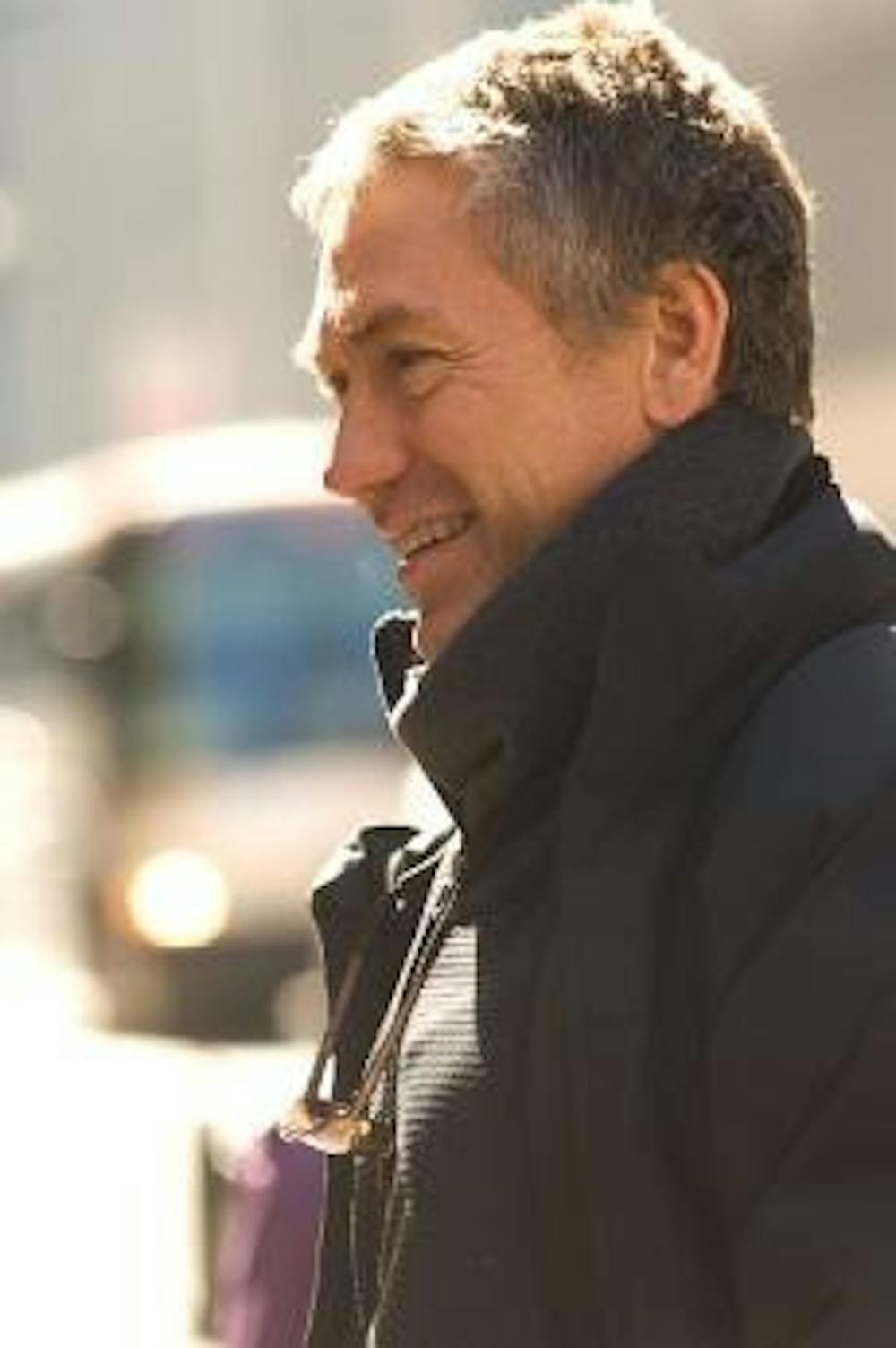Tony Gilroy, writer and director of the George Clooney thriller "Michael Clayton," sat down with the college newspapers of the D.C. metropolitan area to discuss his transition from screenwriter to screen director, his disgust with the Internet Movie Database, and how he went from realizing "Clayton" on paper to transforming it onto celluloid.
College Roundtable: Being a director and writer, is this something you'd like to continue, [being in control of both aspects]? I know you're also going to be writing "State of Play."
Gilroy: I'm done with that. I'm actually irritated that that's on IMDB.com. I don't think it's appropriate it's on there. I mean, I'd written on it. I worked on it this spring. But it doesn't belong on IMDB if it's not a credit arbitrated by the director.
I think IMDB should have more responsibility. They turn into a utility whether they like it or not. They have no competitor and really are like a public service. It's not Wikipedia. There's no alternative. It should have a rigorous input. I see things posted on there ... and [seeing myself credited on "State of Play"] really irritated me. Yes, I did work on it. But that credit was not arbitrated to me, and somebody [else] is working on it now.
College Roundtable: So, despite that, do you see yourself focusing on a more directorial role?
Gilroy: Oh, yeah. I want to. I'm trying to set up another movie right now. I love doing it. I'm having a really good time doing it. You know, I'm not going to stop writing. I've written for other directors. I've written for myself.
College Roundtable: As a director, were you comfortable making the transition from writer to writer/director? Was it an easy transition?
Gilroy: Yeah. I mean, I waited a long time to do it, so there wasn't a lot of distance. I've been involved with a lot of film productions, and there wasn't really much mystery about movie sets or any of the phases of filmmaking.
I was involved all the way up and down the line, so it really was an amazing perspective. There wasn't too much I hadn't seen, but the transformation was so incremental it was like turning the water up on the lobster pot. It goes so slowly that you suddenly find yourself amazed to say, "Action!" and "Cut!"
Preproduction is so intense. It's almost more intense than making the movie in many ways. By the time you actually get on the set - not that it's anticlimactic - but you really already are either in charge or you're not.
The movie wouldn't exist without Clooney. There's two ways to make movies: You shoot a lot of stuff and try to find a movie in the editing room ... then, there's knowing exactly what you want and shooting it, which is what we did. There are only two scenes we cut out of the movie. It took 42 days to shoot. The scene with the horses - we could only shoot 5 minutes in the morning and 5 minutes at night.
College Roundtable: How long does it take for you to write a script?
Gilroy: Well, this movie was sort of an exception. I picked around a lot of times. I've written scripts in two months, and I've written scripts in two years. You should be able to write one in... five months? Six months? If you know what the movie is, what it's about - that would be the average.
College Roundtable: In your movies, a lot of people have this street-smart voice - a lot of subtext and stuff. Now, the character Tom has a totally different energy. All the other characters speak really composed like the other movies.
Gilroy: Tom's really out there. His character's a manic-depressive off medication. He's got a lot of things he wants to talk about. He's a brilliant guy, desperate to communicate. He's the only person presenting something; everyone else is trying to hide something, cover themselves up. It's sort of natural his vocabulary would be a little bit different.
College Roundtable: Where do you see Hollywood going in the future? Is it comedy? Is it drama?
Gilroy: You mean, what's appealing to people? Man, I think it's a really weird time because the market's really fragmented. In the beginning, there were only a couple of reasons to go to the movies. But now there are more and more reasons. ... People will pay 10 bucks, 11 bucks ... to go sit in a dark room with a bunch of people.
Will they go see "Jackass"? Is that a movie? Or ... or "Michael Clayton"? Or "Armageddon"? The audience is completely fragmented. We still have studios saying, "Well, we have this much money. We need a movie that everybody gets." It's a really weird, screwed up tension. That's why, above a certain number, it's really hard to make a movie like ["Michael Clayton"].
College Roundtable: With your films, especially this one, is there something that you want the audience and critics to get from it, or do you leave it open to interpretation?
Gilroy: I want you to turn the page. I want you to want to know what happens next. It's really important to me to spin a ripping yarn. After that, I want you to feel like you really went somewhere. When I go to the movies, I want to go someplace.
The films that I love are so far and wide. I don't care what they are as long as they take you someplace. I love "Moulin Rouge." That's as exciting to me as "The Battle of [Algiers]." If I feel like I'm watching a product, I just walk out.





